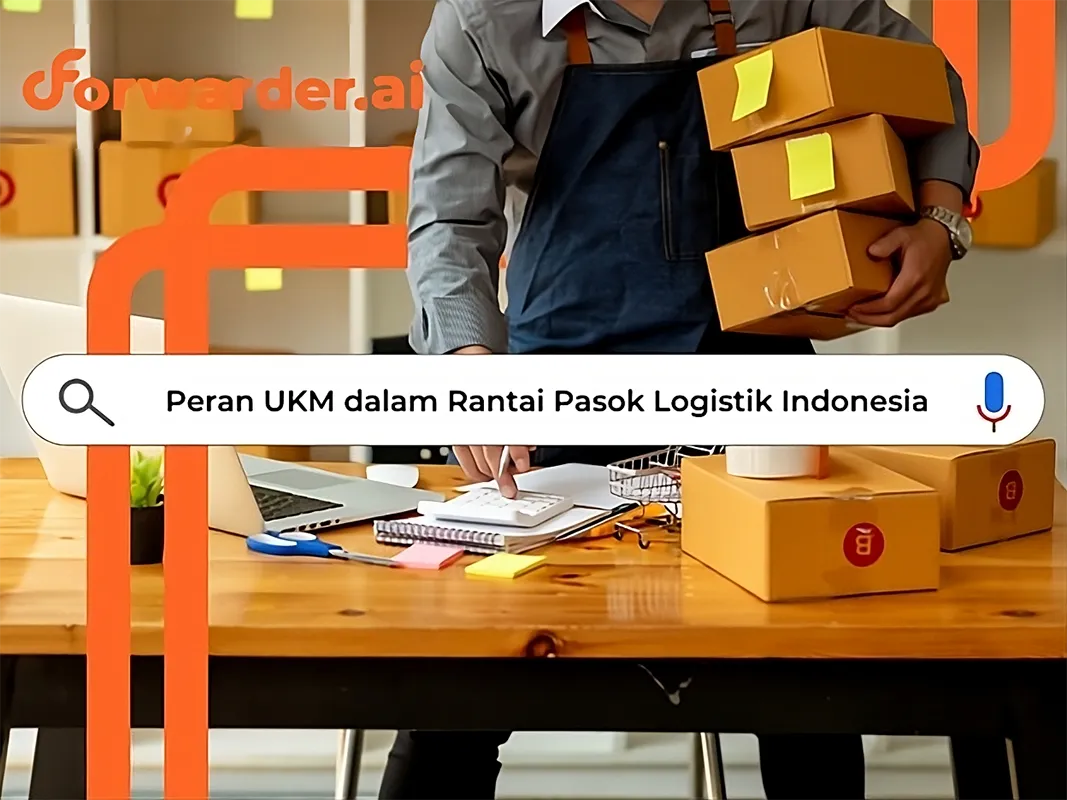
Illustration of How Small and Medium Enterprises Contribute to the Country's Economy
Indonesia's logistics supply chain plays a crucial role in economic development, and small and medium enterprises (SMEs) form the backbone of this ecosystem. SMEs, which account for more than 99% of the total business units in Indonesia, have shown a very significant contribution to the national logistics supply chain. With a contribution to Gross Domestic Product (GDP) reaching 61% and absorbing more than 97% of the workforce by 2023, SMEs are a key pillar in driving economic growth and creating jobs.
SMEs in Indonesia contribute significantly to the logistics supply chain through their ability to provide specialized and localized services. Many SMEs focus on specific markets, providing logistics solutions tailored to the unique needs of their communities. For example, SMEs in rural areas often fill the distribution gap by providing transportation services that connect remote areas with economic centers. The involvement of SMEs in these supply chains allows goods and services to reach areas that are not always covered by large logistics companies.

illustration of supply chain logistics in SMEs.
In addition, SMEs often have high flexibility, which allows them to adapt quickly to changing market conditions. In the ever-changing logistics industry, the ability to respond to challenges such as changes in demand, supply chain disruptions, and technological shifts is a great advantage. For example, during the COVID-19 pandemic, many SMEs were able to shift to an online business model and offer faster and more efficient delivery services to meet the growing demand for online shopping.
In addition to operational contributions in the supply chain, SMEs also have a significant economic impact. By creating jobs and increasing income for local communities, SMEs play a role in reducing poverty and promoting social stability. For example, data from the Central Bureau of Statistics (BPS) shows that by 2023, SMEs have contributed to absorbing more than 116 million workers, making this sector one of the main pillars in keeping the unemployment rate low.
SMEs also play a role in driving the growth of new industries and economic diversification. With the ability to explore niche markets and provide services or products not offered by larger companies, SMEs drive innovation and economic sustainability. The logistics industry, in particular, benefits greatly from innovations driven by SMEs, ranging from the development of cheaper technological solutions to improved distribution efficiency.
Despite their important role, SMEs also face various challenges in operating in the logistics supply chain. Some of the key challenges include limited access to funding, technology, and infrastructure. For example, many SMEs struggle to access the financing needed to expand their business or invest in more advanced logistics technology. In addition, infrastructure limitations in some areas, such as poor roads or lack of internet access, are also barriers for SMEs to grow.
Read more : Tips for Optimizing Ground Shipping Routes to Reduce Cost and Time
forwarder.ai comes as an innovative solution that supports the growth of SMEs and the Indonesian economy through efficient and accessible logistics services. With advanced technology and a user-friendly platform, forwarder.ai enables SMEs to optimize their shipping process without the need to invest huge time and resources. Services such as real-time tracking, price transparency, and shipment documentation automation help SMEs to focus more on growing their business.
forwarder.ai also offers various types of vehicles tailored to the logistics needs of SMEs, ranging from small pickups for light deliveries to tronton boxes and heavy fusos for large-scale deliveries. This flexibility in vehicle options allows SMEs to choose the most efficient and economical solution to suit their shipping needs.

Example of SMEs in the culinary field.
Looking ahead, the role of SMEs in Indonesia's logistics supply chain is predicted to become even more vital. With continued economic growth and the need for more efficient and affordable logistics solutions, SMEs have a great opportunity to grow further. Collaboration between SMEs and large companies, as well as continued support from the government, will be key to ensuring that SMEs can continue to contribute significantly to Indonesia's economic development.
Read more : Digital Logistics Transformation with forsis: AI-Powered TMS System for Optimal Efficiency
SMEs are an important component in Indonesia's logistics supply chain. Through their contributions in providing specialized services, creating jobs, and driving economic growth, SMEs have shown that they are pillars that cannot be ignored in national economic development. With the right support from the government, private sector, and technological innovations from platforms such as forwarder.ai, SMEs will continue to play a key role in strengthening the logistics supply chain and advancing the Indonesian economy going forward.
